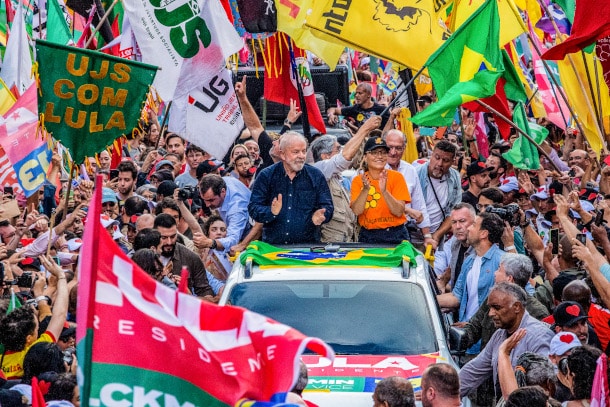In 2019, then-President Jair Bolsonaro signed a decree that barred civil society representatives from participating in Brazil’s National Council on Drug Policy (CONAD). Now, President Luiz Inácio Lula da Silva is bringing them back. Whether the representatives themselves will be those who advocate change, or are more interested in maintaining the status quo, is another matter.
In Brazil, the term “civil society” broadly refers to activist collectives focused on specific issues. Their advocacy can take any number of forms, from organizing protests to lobbying to consulting on political campaigns, and often involves collaborating with the government. CONAD civil society representatives were formal positions with seats at the table—and now they will be again. This time, some will be elected.
Per an April 6 presidential decree, CONAD will have 10 elected seats and another five appointed seats, besides its governmental members. The latter will be filled by members of the National Council for Social Assistance; the Federal Council of Medicine; the Federal Psychology Council; the Order of Attorneys of Brazil; and the Brazilian Society for the Advancement of Science.
The reinstatement of CONAD civil society representatives is welcome, in the context of Lula having taken little meaningful action on drug policy since his inauguration.
There had traditionally been 13 civil society seats. Bolsonaro, with a stroke of his pen, removed all of them. At the time, five had been occupied by representatives of the above councils. Another three had come from the National Council of Education; the National Union of Students; and the Federal Council of Nursing. The remaining five, appointed by the ministers who chaired CONAD, were a journalist; an anthropologist; an artist; and two NGO workers.
All 15 seats now planned will have two-year terms. There should be a public announcement calling for candidates for the 10 elected seats within the next two months. CONAD’s government members, meanwhile, will come from a number of federal ministries, mainly those that oversee public health and social safety nets. The Federal Police will be represented as well.
Lula himself established CONAD in 2006, during his first presidential term—the same year he signed the infamous drug “decriminalization” legislation that would go on to fuel Brazil’s ongoing mass incarceration crisis. The reinstatement of CONAD civil society representatives is welcome news, in the context of Lula having taken little meaningful action on drug policy since his inauguration in January.
Civil society representatives have always been left-leaning. However, they have never leaned too far from the center. People who use drugs, or anyone directly impacted by the harms of Brazil drug policy, like forced treatment in the notorious therapeutic communities, have been notably absent from CONAD.
We will most likely see a number of white representatives with varying degrees of “savior complexes.”
It’s unclear how much this will change, even in the context of some positions now being up for election. Many civil society groups will be strategically nominating candidates who won’t come across as controversial, and the groups themselves are not necessarily the most radical.
There’s a more realistic chance that people with past lived experience of drug use could get a seat at the table, but even this seems unlikely. Perhaps there is a chance we could see the inclusion of trans activists and medical cannabis patients. What we will most likely see are many white people with varying degrees of “savior complexes” advocating for people subjected to state violence, rather than those people advocating for themselves.
Bolsonaro’s suppression of civil society groups, along with keeping CONAD deliberations behind closed doors with no transparency to the public, was an attack on democracy. Reinstating these seats does not on its own undo that, or any of the social harms caused by decades of prohibitionism and punitive legislation.
What’s needed are reparations—for the people targeted by state violence and the drug war, and amid the structural racism embedded in law enforcement and drug policy. These seats should go to people who advocate for such reparations, and to those willing to initiate discussions of non-problematic drug use—a concept the government does not currently acknowledge.
Photograph via Mídia NINJA/Flickr/Creative Commons 2.0





Show Comments